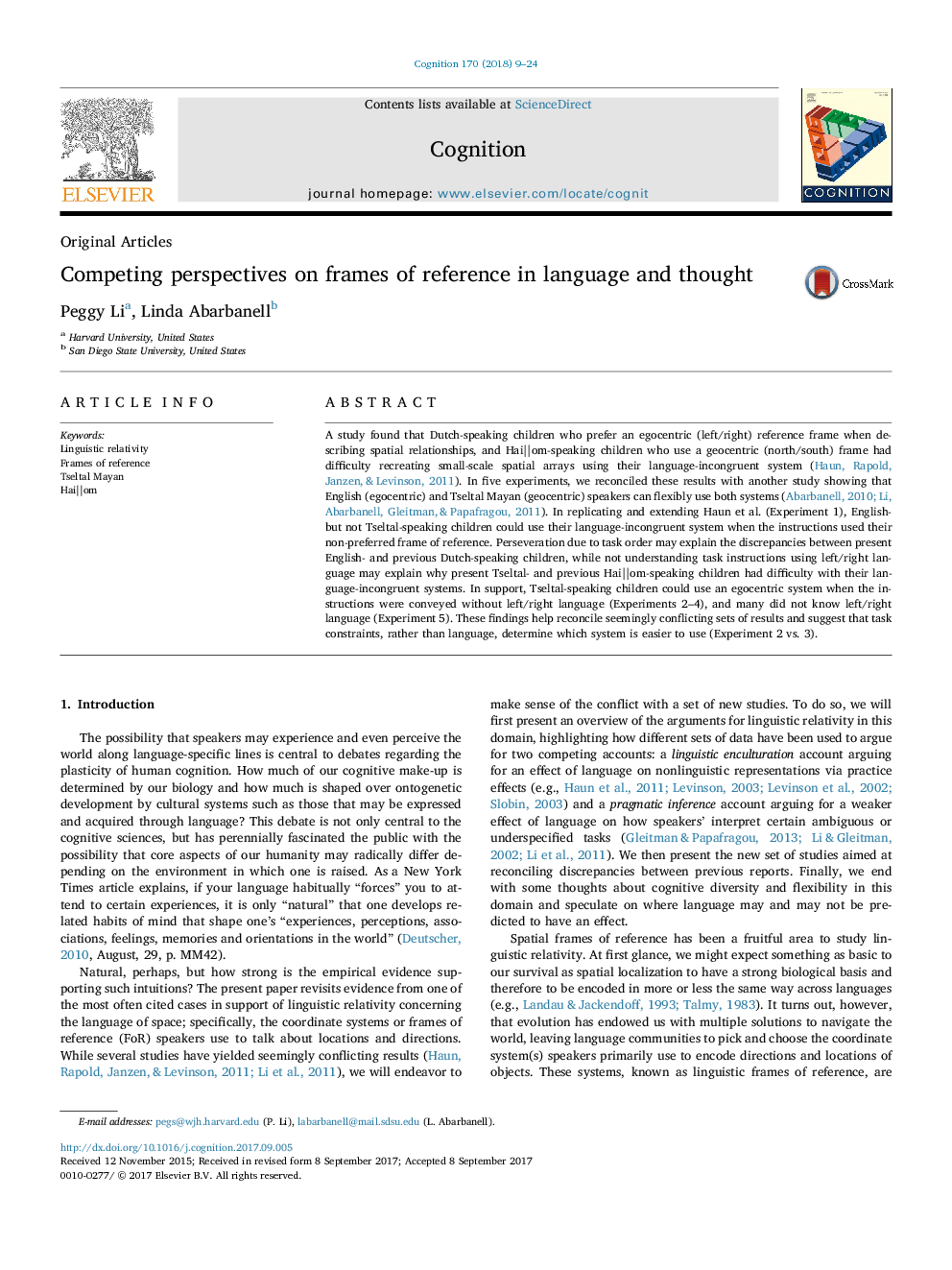ترجمه فارسی عنوان مقاله
دیدگاه های رقابتی در قالب مرجع در زبان و اندیشه
عنوان انگلیسی
Competing perspectives on frames of reference in language and thought
| کد مقاله | سال انتشار | تعداد صفحات مقاله انگلیسی |
|---|---|---|
| 153241 | 2018 | 16 صفحه PDF |
منبع

Publisher : Elsevier - Science Direct (الزویر - ساینس دایرکت)
Journal : Cognition, Volume 170, January 2018, Pages 9-24

